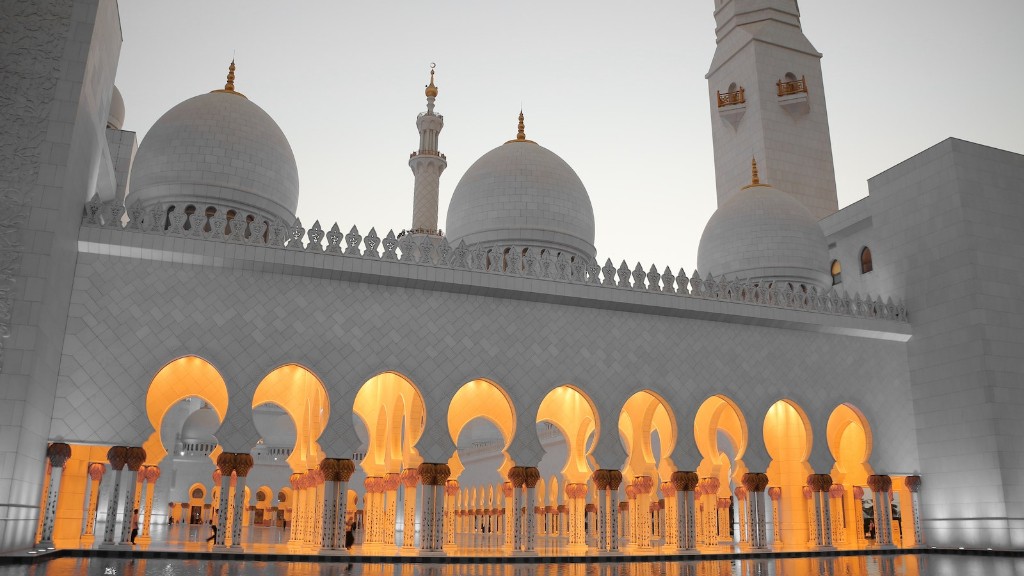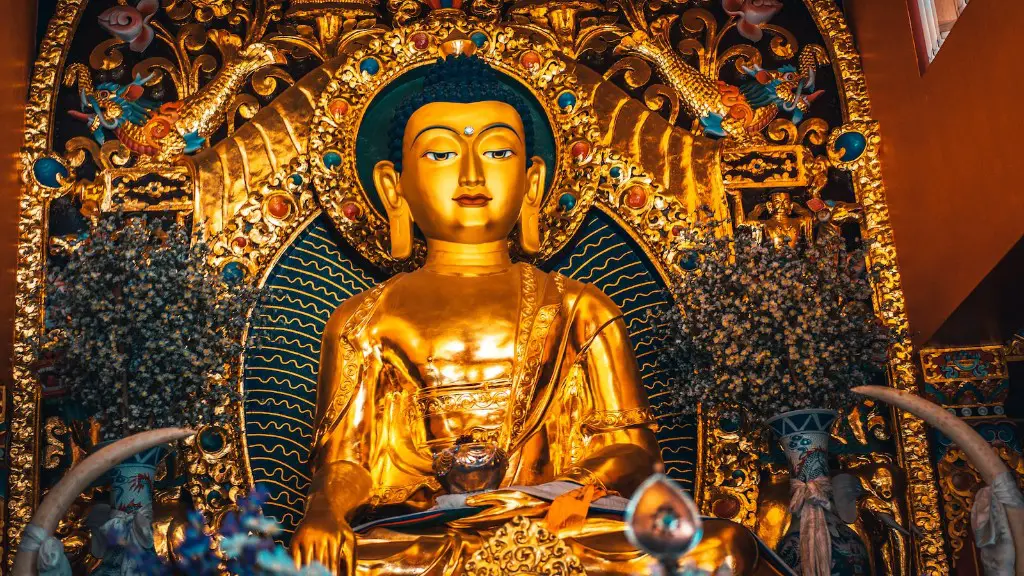Hinduism is the world’s oldest living faith, and its pantheon of gods and goddesses is one of the most complex and intricate of any religion. With multiple deities covering all aspects of life, from fertility and healing to animal symbology and cosmic functions, understanding the role of each figure in the Hindu pantheon can be daunting and confusing for those unfamiliar with the faith. Beyond the major gods that many Westerners are familiar with, such as Vishnu, Shiva, and Ganesha, Hinduism features a vast and varied group of deities and divine agents, each of which plays an important role in the lives and rituals of Hindu followers.
One of the main distinctions in Hinduism is the concept of a Trimurti, which consists of the three main gods of the faith: Brahma, Vishnu, and Shiva. Brahma is the god of creation, while Vishnu brings order and preservation, and Shiva is the god of transformation. These gods are seen as representing the different aspects of divine energy, and beyond this core group, modern Hinduism also includes regional gods, such as the goddess Durga, who is considered the primary goddess of northeastern India, and the god Ganesha, who is known for his elephant head and his role as a remover of obstacles.
The pantheon also includes some fascinating characters such as the fiery goddess Kali, the mischief-making god Hanuman, and the monkey god Hanuman, who is considered the helper and protector of Vishnu. In addition, there are minor gods and goddesses, elemental gods, and ancestral creators, all of which contribute to the overall furtherance of the Hindu faith. In addition, each god or goddess is often associated with certain animals, colors, and other symbols, which further adds to the complexity of the Hindu pantheon.
Clearly, the world of Hindu gods and goddesses is vast and varied, and in some way it could be said that the number of gods and goddesses in Hinduism is infinite. But, more conservative estimates suggest that there are around 330 million gods in the Hindu pantheon, although modern Hindus typically concentrate on a select group of gods and goddesses that most closely reflect their various spiritual needs. Those seeking specific divine guidance, prayers, and rituals may rely on a single god or goddess, whereas others may pray to a number of gods and goddesses as part of their daily devotional practices.
It should also be noted that Hinduism recognizes that all gods are manifestations of a single divine being, and thus each is capable of providing the follower with a different perspective and approach to understanding the ultimate reality of the divine. This means that, even within a single belief system, there is great diversity and complexity in the way that individuals approach the divine, with each person potentially focusing on different underlying principles.
In addition, the gods and goddesses of Hinduism are believed to be constantly changing. As a result, the number of gods and goddesses in Hinduism can often vary depending on the region and era in which it is practiced. As such, it can be difficult to pin down an exact number, but a conservative estimate puts the number at around 330 million.
Milestones in Hinduism
Hinduism has a rich history going back thousands of years, with its origins believed to reach as far back as 1500 BCE. In this time, various groups of people developed their own distinct beliefs, practices, and ceremonies that continue to be part of Hinduism today. Throughout the centuries, Hinduism continued to evolve and adapt to new circumstances, giving rise to new gods and goddesses and new interpretations of existing ones. This dynamism is part of what makes Hinduism so unique and interesting, and it is part of what has enabled the faith to survive and thrive for so many centuries.
Key religious texts in Hinduism include the Rig Veda and the Upanishads, both of which reveal a great deal about the gods and goddesses and their roles in Hinduism. These works also provide insights into the beliefs and ritual practices of ancient Hindus, which can be applied to more contemporary worship. Additionally, modern Hindus often seek guidance and inspiration from spiritual teachers and gurus who strive to pass down the beliefs and practices of their ancestors in a way that is suitable to modern times.
Hinduism and Monotheism
Though Hinduism is sometimes seen as a polytheistic religion, there is still an underlying monotheistic strain in it, which is exemplified in the Vedanta tradition that states that, beyond the multitude of gods, there is a single all-encompassing divine being that animates them all. This belief allows for an understanding of the Hindu pantheon in which each god and goddess is seen as a manifestation of the divine, and all gods and goddesses as aspects of a single divine being.
Given its unique theological beliefs and its vast array of gods and goddesses, Hinduism is a spiritual tradition that offers believers a wide array of paths to explore and worship the divine. The sheer number of gods and goddesses in Hinduism is part of what makes it so fascinating and inspiring to followers, and it is part of what has allowed the faith to endure for thousands of years.
The Role of Incorporating Hindu Gods and Goddesses into Our Lives
Incorporating the gods and goddesses into our lives is one of the most important aspects of Hinduism. Through the utilization of mantras, chants and rituals, Hindus have found ways to access the power and guidance of each of the gods and goddesses, allowing for an eclectic and multifaceted approach to spirituality. Furthermore, the gods and goddesses serve as models for humans, helping to inspire and guide us in our everyday lives.
For example, Shiva is seen as a symbol of cosmic destruction and liberation, and thus his practices are sometimes used to help individuals break free from old, unhealthy habits and behaviors. Similarly, Brahma’s qualities of creation and sustenance can be used to help those on the path to enlightenment create a stable and supportive environment. Likewise, Vishnu’s efforts at protecting and preserving the universe are often invoked by Hindus in times of difficulty and danger.
In short, understanding and incorporating the gods and goddesses of Hinduism into our daily lives can be a powerful and enriching experience, helping us to become more conscious and mindful of our own place in the universe and our role in shaping it. By accessing the divine power of each god or goddess, individuals can create a strong spiritual connection with the divine and receive guidance and comfort in difficult times.
Hinduism and Eastern Religions
Though Hinduism is often thought of as part of the Eastern religions, it is important to note that it is also deeply intertwined with other faiths from around the world. For example, the influence of yoga on Hinduism cannot be overstated, as it has deeply impacted the spiritual practices of Hindus around the world. Similarly, Buddhism and Jainism both have roots in Hinduism, while various aspects of the faith have been adopted by other faiths, such as Buddhism and Sikhism.
Those looking to explore the Hindu pantheon should take a look at the various traditional Hindu texts, such as the Upanishads, the Bhagavad Gita, and the Ramayana, as well as modern interpretations of the faith. Additionally, there are numerous temples and spiritual centers in India and other parts of the world dedicated to the worship and celebration of the gods and goddesses of Hinduism. Visiting these places and participating in traditional rituals can be a powerful way to understand and explore the faith further.
Conclusion of the Influence and Legacy of Hinduism
The influence of the gods and goddesses of Hinduism can be seen in the art and literature of India, as well as across the world, from popular music and film to the widespread practice of yoga. In this way, Hinduism has helped to shape and define culture around the world, and it continues to be an important part of spiritual practice for millions of people. While the number of gods and goddesses in Hinduism can seem overwhelming at first, exploration and understanding of the faith can help to make their presence and significance more clear.

